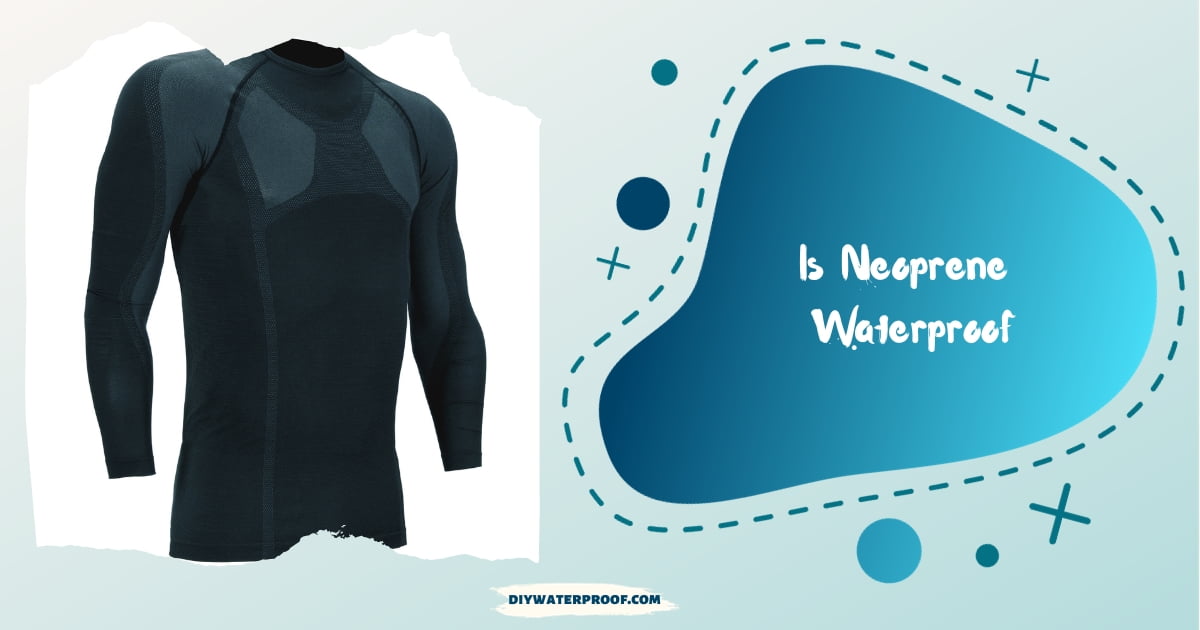Is Neoprene Waterproof? Yes. Neoprene is a type of synthetic rubber that has excellent water-resistant properties. It is commonly used in wet suits, gloves, and other water sports gear because it can provide insulation and protection against cold water.
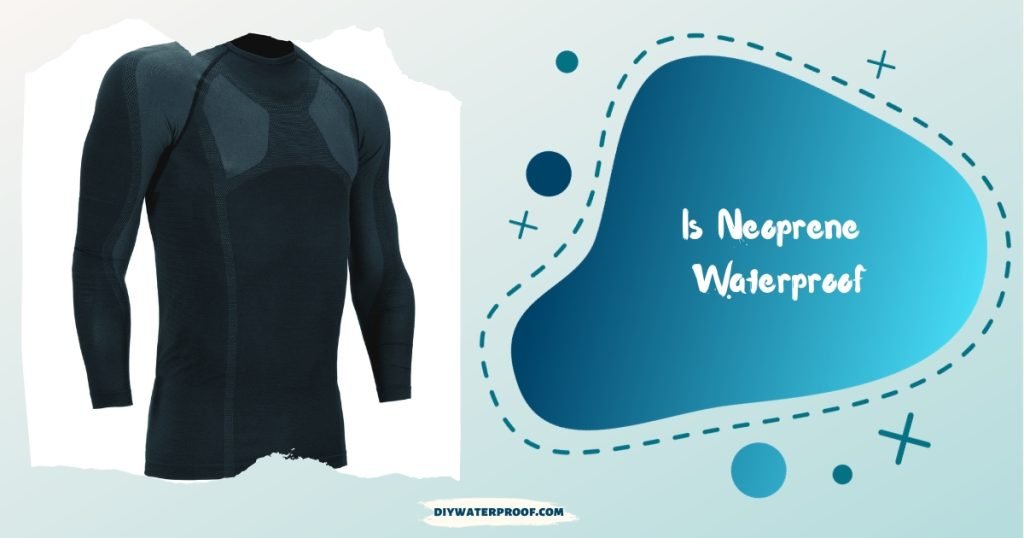
Neoprene itself is not entirely waterproof, but it has a closed-cell structure that prevents water from passing through it quickly. This means that while some water may enter the material, it will not absorb large amounts of water and make the gear feel heavy or uncomfortable.
Neoprene is a synthetic rubber material that was first developed in the 1930s. It has become widely used for various applications due to its unique properties, including its ability to be waterproof.
In addition to being waterproof, neoprene is also resistant to oils and chemicals, making it an ideal material for industrial purposes. It is also a popular choice for laptop cases or phone covers because of its water-resistant properties.
Is Neoprene Waterproof (7 Benefits)
1. Excellent Insulation
Neoprene is a barrier between the cold water and your body, keeping you warm even in freezing temperatures. This is especially beneficial for surfing or scuba diving where prolonged exposure to cold water can be dangerous.
2. Durability
Neoprene is a very durable material that can withstand harsh conditions. It resists tearing and punctures, making it suitable for outdoor activities and sports gear.
3. Lightweight
Despite its durability, neoprene is a lightweight material, which makes it comfortable to wear or carry around. This is another reason why it’s preferred for water-based activities as it does not weigh you down in the water.
4. Flexible
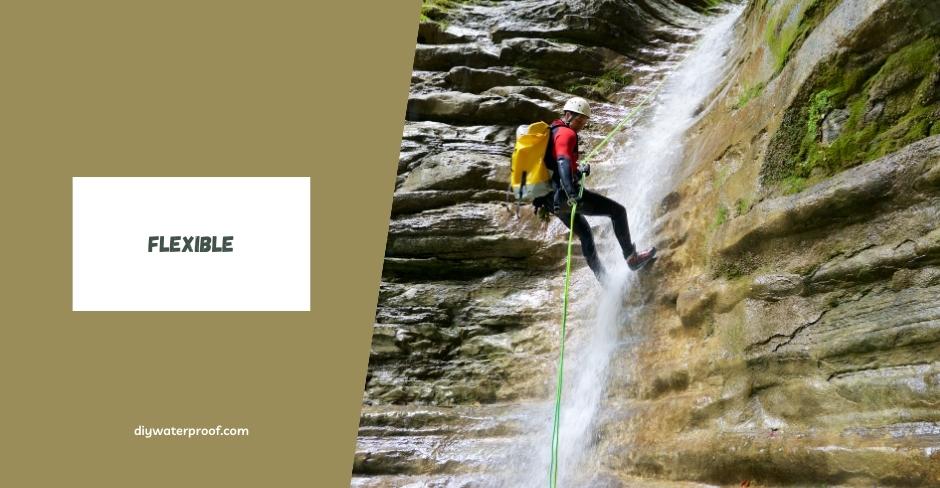
Neoprene has excellent flexibility, allowing for a full range of motion while wearing it. This makes it perfect for activities that require movement, such as surfing or kayaking. It also makes neoprene comfortable, as it molds to the body’s shape and moves with you.
5. Quick-drying
As mentioned earlier, while neoprene is not entirely waterproof, its closed-cell structure prevents water from absorbing. This also means that it dries quickly, making it ideal for water sports gear that is frequently exposed to water.
6. Resistant to UV Rays
Neoprene has a high resistance to UV rays, which makes it suitable for outdoor activities and exposure to sunlight.
7. Environmentally-friendly
Neoprene can be recycled and reused, making it an eco-friendly choice for various products. Also, its durability means it has a longer lifespan than other materials and reduces waste.
Neoprene is an excellent material for waterproof applications due to its unique properties. Its ability to provide insulation, flexibility, lightness, and resistance to water and other elements makes it a top choice for water sports gear.
Types of Treatments
Several types of treatments can improve the waterproof properties of neoprene. Here are some of the most common ones:
1 . Chemical Coating
This treatment involves using a specialized chemical solution to coat the surface of the neoprene. The solution creates a thin film that helps repel water and prevent it from seeping through the material.
2. Wax Treatment
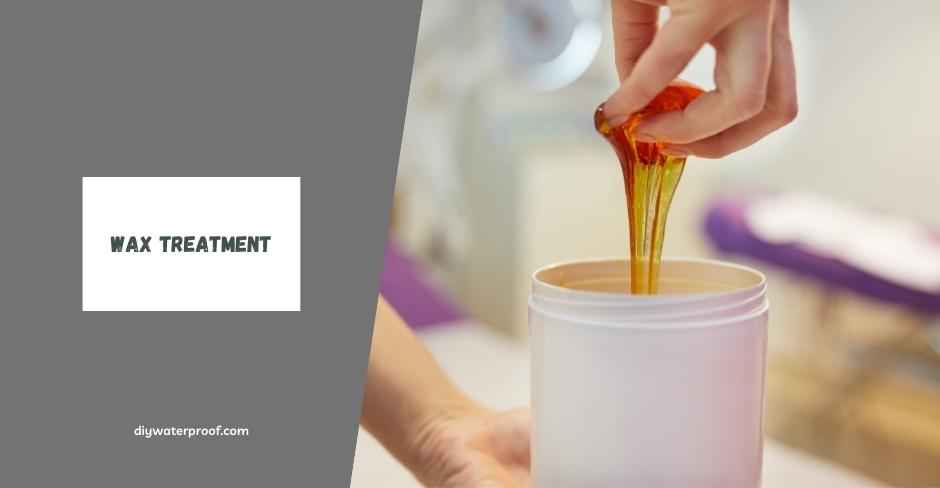
Another popular option is to use wax to make neoprene more waterproof. The wax is rubbed onto the material’s surface, creating a barrier against water and enhancing its resistance to moisture.
3. Silicone Sealant
Silicone sealant is a flexible and durable material that can be applied to neoprene to improve its waterproof capabilities. It forms a protective layer on the surface, making it more resistant to water.
4. Polyurethane Coating
This treatment involves using a polyurethane-based solution to coat the neoprene. The resulting film is highly water-resistant and can improve the material’s durability.
By using these types of treatments, you can further enhance the waterproof properties of neoprene for a wide range of applications. Whether you want to keep your body warm during water sports or protect electronic devices from moisture, neoprene’s waterproof capabilities make it a reliable and popular choice for various products.
Application Methods
The above treatments can be applied to neoprene using different methods, including:
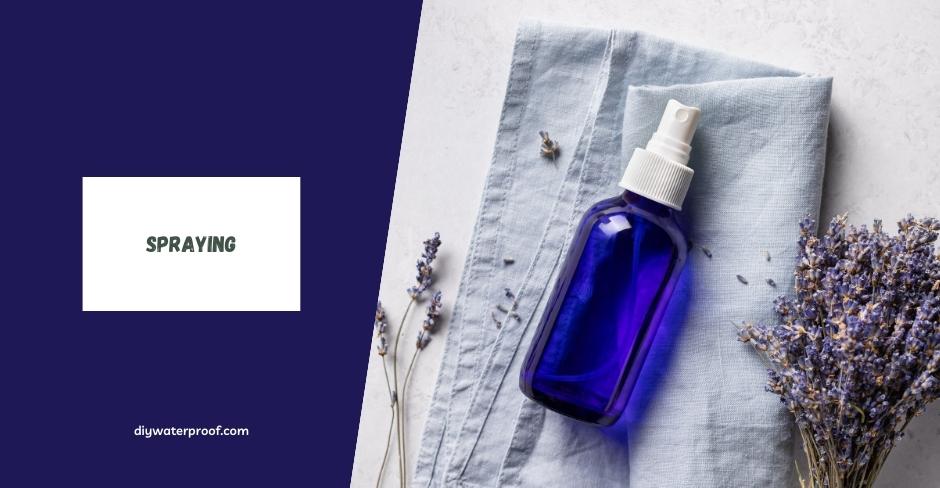
- Spraying: A fine mist of the treatment solution is sprayed onto the surface of the neoprene, ensuring even coverage.
- Brushing: The treatment solution is brushed onto the material, allowing for more control over where and how much is applied.
- Dipping: The neoprene is dipped into the treatment solution, ensuring full coverage of all surfaces.
By applying these treatments, you can enhance the waterproof properties of neoprene and make it even more suitable for your specific needs. It’s essential to follow the manufacturer’s instructions carefully when applying treatments to ensure maximum effectiveness and safety.
Factors to Consider
When deciding on a treatment to make neoprene more waterproof, there are several factors to consider:
- Purpose: The intended use of the neoprene will determine which treatment is most suitable. For example, wetsuits used for surfing may require a different treatment than medical equipment.
- Compatibility: Some treatments may not be compatible with certain types of neoprene or other materials. It is essential to ensure that the treatment will not damage or affect the functionality of the neoprene.
- Durability: Some treatments may wear off over time, requiring reapplication. Consider the durability and longevity of the treatment before making a decision.
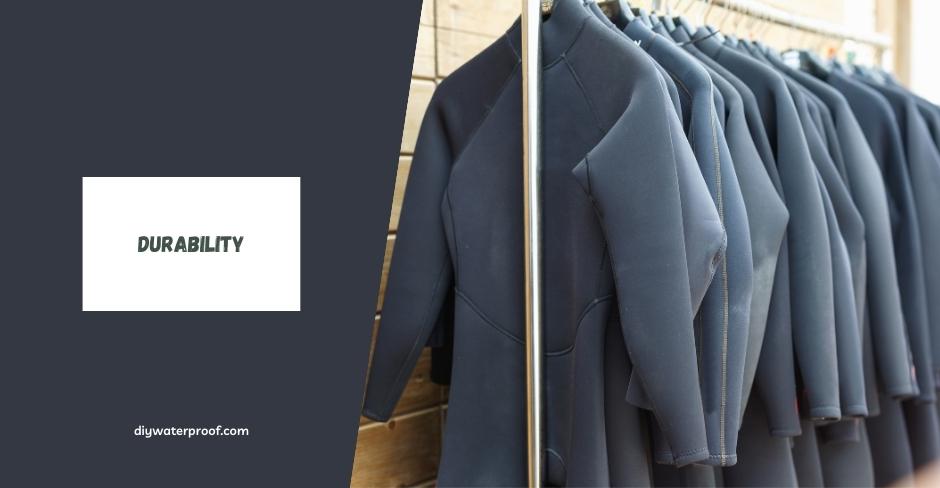
Depending on your specific needs and preferences, you can choose various treatments and application methods to make your neoprene products more suitable for wet environments.
Few Things That Can Affect the Longevity of Neoprene’s Waterproofing
1. UV Exposure
Neoprene is sensitive to UV radiation, which can cause it to degrade over time. If your neoprene gear is regularly exposed to direct sunlight, it can lose its waterproof properties more quickly.
2. Chemical Exposure
While neoprene is resistant to most oils and chemicals, prolonged exposure to certain substances can cause it to break down and lose its waterproof capabilities. It’s essential to avoid contact with these substances to ensure the longevity of your neoprene products.
3. Improper Care
Proper care and maintenance can also affect the lifespan of neoprene’s waterproofing. For example, using harsh chemicals or machine washing can damage the material and reduce its water resistance.
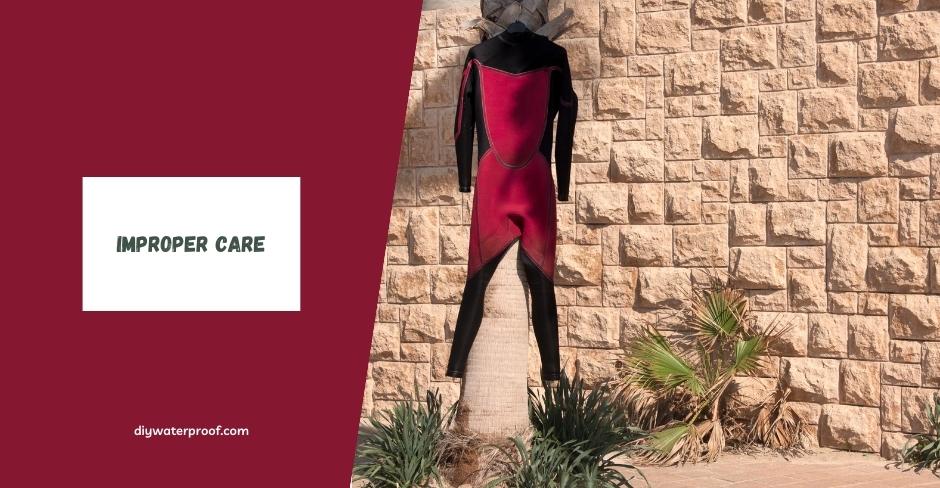
4. Wear and Tear
Like any other material, neoprene will eventually wear out over time with regular use. Constant stretching and flexing can cause the material to break down, leading to a decrease in its waterproof properties.
To prolong the waterproofing of your neoprene gear, it’s essential to store and handle it properly, avoid exposure to damaging elements, and follow recommended care instructions. By taking these steps, you can ensure that your neoprene products continue to provide reliable water protection for years to come.
FAQs
How Does Neoprene Fare in Wet Conditions?
Neoprene is a highly water-resistant material that can keep you dry and warm in wet conditions. Its closed-cell structure prevents water from effortlessly passing through, making it an ideal choice for surfing or diving where exposure to cold water is everyday.
However, if neoprene gear gets damaged or worn out, water may start seeping through the material. Therefore, it’s essential to regularly check and maintain your neoprene products for optimal performance in wet conditions.
What is the Water Resistance of Neoprene?
Neoprene is not entirely waterproof, but its resistance depends on factors such as thickness and the type of neoprene used. Generally, thicker neoprene provides better insulation and water resistance due to its increased density.
The closed-cell structure also plays a significant role in its water resistance capabilities. However, if you want maximum water protection, it’s best to use neoprene with a waterproof coating or layer.
So, while neoprene is not entirely waterproof, it still offers excellent water resistance for various applications. Overall, its unique properties make it an ideal choice for keeping you dry and comfortable in wet conditions.
Is Neoprene More Waterproof Than Other Materials?
Neoprene is a synthetic rubber material that has become increasingly popular in the manufacturing of various products such as wetsuits, laptop sleeves, and diving gear. One of the main reasons for its popularity is its waterproof properties.
When comparing neoprene to other materials, it can be challenging to make a blanket statement about its overall waterproofness. This is because different materials have varying levels of waterproofness, and can also be treated with different coatings or laminates to enhance their waterproof abilities.
However, neoprene does have some natural properties that make it a strong contender for being more waterproof than other materials. Firstly, neoprene is inherently water-resistant. It comprises tiny closed-cell bubbles that trap air inside the material.
These bubbles act as insulation, keeping water out and warmth in. This is why neoprene is commonly used for wetsuits, as it helps to keep the wearer warm while in the water.
How Long Does Neoprene Remain Waterproof?
Neoprene is a type of synthetic rubber that is commonly used in various waterproofing applications. It is known for its durability and resistance to water, making it a popular choice for wetsuits, diving suits, and other outdoor gear.
However, like any material, neoprene does have its limitations and will eventually lose its waterproof properties over time. The lifespan of neoprene’s waterproofing largely depends on how well it is maintained and its exposure to different factors.
Are There Any Treatments to Make Neoprene More Waterproof?
Neoprene is a versatile and commonly used material with many applications, including in the manufacturing of wetsuits, diving gear, and medical equipment. It is known for its durability and flexibility, but one drawback of neoprene is that it is not entirely waterproof.
Fortunately, there are some treatments available that can make neoprene more waterproof. These treatments involve adding a layer of water-resistant coating or sealant to the surface of the neoprene, providing an extra barrier against water penetration.
Is Neoprene Breathable?
Neoprene is a synthetic rubber material that has become increasingly popular in the production of various products such as wetsuits, laptop sleeves, and even face masks.
One of the common questions surrounding neoprene is whether or not it is breathable. The short answer is yes, neoprene is generally considered a breathable material. However, there are some factors to consider regarding the breathability of neoprene.
In general terms, breathability refers to the ability of air and moisture to pass through a material. This is important because it can affect comfort levels when wearing or using a product made from that material. A breathable material allows air and moisture to escape, preventing heat and sweat buildup.
In the case of neoprene, it is considered breathable because it allows air and moisture to pass through its tiny pores. These pores are formed during the manufacturing process when gas bubbles are trapped within the material. This creates a network of interconnected air pockets that allow for ventilation.
Final Thought
In Closing, while it is generally agreed that neoprene is a breathable material, it is essential to note that the level of breathability can vary depending on the thickness and density of the neoprene. Thinner and less dense neoprene will be more breathable than thicker and denser options.
Additionally, the design and construction of a product also play a role in its overall breathability. Ultimately, neoprene’s breathability is just one of its many beneficial properties and it remains a popular material for a variety of uses.
So next time you’re considering a product made from neoprene, rest assured that it offers both durability and breathability. We hope this article about Is Neoprene Waterproof and Breathable has been helpful.

